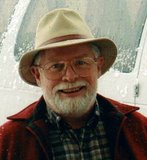JAPANESE-AMERICAN HEROISM
Eugene, OR, has dedicated a beautifully designed pocket park in downtown to the memory of the Japanese-Americans who taught this nation so much about dignity and endurance during WWII and in the years since. These were the American citizens and their families who were mistreated during the fear and panic which swept the nation in the months and years following the attack on Pearl Harbor by the nation of Japan.

In February 1942, most American citizens of Japanese descent were ordered to report to collection centers to be deported from the west coast states and to be relocated into isolated, primitive, internment camps in remote and often inhospitable desert regions throughout the western USA. 120,000 or more were thus separated from society, losing in the process their personal properties, family heirlooms, businesses, and individual rights.
Three monoliths tell the story under the titles "Perseverance", "Honor", and "Justice". The texts are terse, but even so condensed, one can sense the drama of a people struggling to regain losses and dignity which never should have been taken from them. The text of "Perseverance," (pictured above) is shown below.

The text does not tell how these remarkable heroes fought some of the dirtiest, bloodiest hand-to-hand battles of WWII, in the process rescuing an isolated regiment of Texans and incurring overall more casualties and deaths and earning more honors in combat than any other military unit in American combat history. Characteristically, most of them never spoke about their achievements after returning to America where, because they did look Japanese, they were often treated as though they were the enemy.

In the park is a small granite bench. The statement along its front summed up what such a memorial should help us remember. Pointing out that those in the camps, those fighting and dying in battle, and those who took on the government and a shameful national prejudice gave their all for one basic reason: that the next generation would never have to endure such indignity and pain and "loss of face".
Labels: Internment Camps, Japanese-America







3 Comments:
Touching and humbling, John. Thanks.
Did you hear that the University of Washington granted honorary college degrees to 450 Japanese-Americans who were pulled out of college to be placed in camps?
Former World War II internees get honorary degrees.
http://www.tri-cityherald.com/916/story/188311.html
If you want to read the pictures, just click on each one and they'll magnify to full-size.
Thanks for sharing a piece of your Saturday.
Post a Comment
<< Home